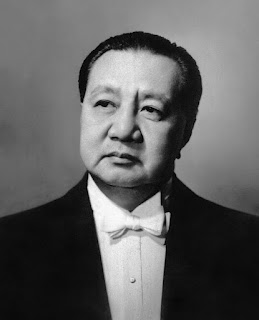Elpidio Quirino, the sixth president of the Philippines, played a pivotal role in the nation's recovery after the devastation of World War II. Born on November 16, 1890, in Vigan, Ilocos Sur, Quirino was raised in a family that valued education and public service. His father, Don Mariano Quirino, was a respected provincial official, while his mother, Doña María, was a strong influence in his life. Quirino’s early exposure to governance and his family's strong moral values would shape his future career as a public servant. His academic journey took him to the University of the Philippines, where he earned a law degree with honors, and eventually passed the bar exam in 1915. This solid foundation in law would serve him well as he moved into public service.
As one would expect from the early years of the then-young lawyer, Quirino first gained distinction in the practising profession. However, he began to rise to national prominence when he entered politics. In 1919, at the age of 29, he was appointed as a member of the National Assembly, where he was known as highly intelligent, indefatigable, and honest. He would go on to serve in several important government positions, including as Secretary of Finance under President Manuel Quezon. During his time as finance secretary, Quirino adopted policies meant to bring stability to the ailing economy of the country that had been drastically crippled by the effects of World War I. He was a highly experienced financial and economic policy expert who made him a trustworthy figure in the government, hence readying him for the higher challenges he would face in the future.
In 1941, Quirino was elected vice president of the Philippines and served under President Manuel Quezon during the looming World War II. The position enabled him to gain experience in governance at the national level, and during the outbreak of the war, he and President Quezon formed the government in exile during the Japanese occupation. Post-war, Quirino was an important player in the rebuilding of the country from the atrocities wrought by the war. He was made Secretary of Finance but now his focus would be to rebuild the economy in the war-torn regions. His fiscal policies slowly steered the country towards economic stability again, and he was also responsible for delivering the Philippine Rehabilitation Act from the United States which allocated funds to rebuild infrastructures and industries.
Quirino succeeded as the president of the Philippines in 1948 after the death of President Sergio Osmeña. The revivalist phase of rebuilding marked his presidency since the Japanese occupation left the country absolutely devastated and in shambles. One of Quirino's primary tasks included dealing with war veterans and war survivors, most of whom became destitute and could hardly piece their lives together. His administration provided reparations to war veterans and supported war-displaced citizens under his administration. Quirino's government started the most massive infrastructure projects, rebuilt schools and hospitals, and set about trying to repair the country's industrial infrastructure. His administration was one of healing and rebuilding the nation, which was no small task.
Quirino led social welfare and public health, one of the great accomplishments made during his presidency. He supported programs intended for ordinary Filipinos, the rural poor, whom he believed in helping. His focus in his government was on expanding education and health facilities, and he initiated reforms to upgrade social services of the country. His notable achievement was the establishment of the National Economic Council in 1950 that helped simplify the country's development plans and brought together government efforts in the stimulus of growth. His vision is both for economic reconstruction and social progress that gives all Filipinos a better way of life by upgrading their standard of living.
Despite the criticisms and challenges hurled against him during his presidency, Quirino's legacy endures as he worked hard to rebuild a battered Philippines with its foundations strengthened by working on more conventional areas such as education, social welfare, and infrastructure. His leadership in a period of national crisis displayed his strength, persistence, and commitment to his country. Even after his presidency, his influence continued to be felt, and he remained an important figure in Philippine politics. Elpidio Quirino's tenure as president may have been marred by controversies, but it was also a period of significant progress that set the stage for the Philippines' future growth and development.







